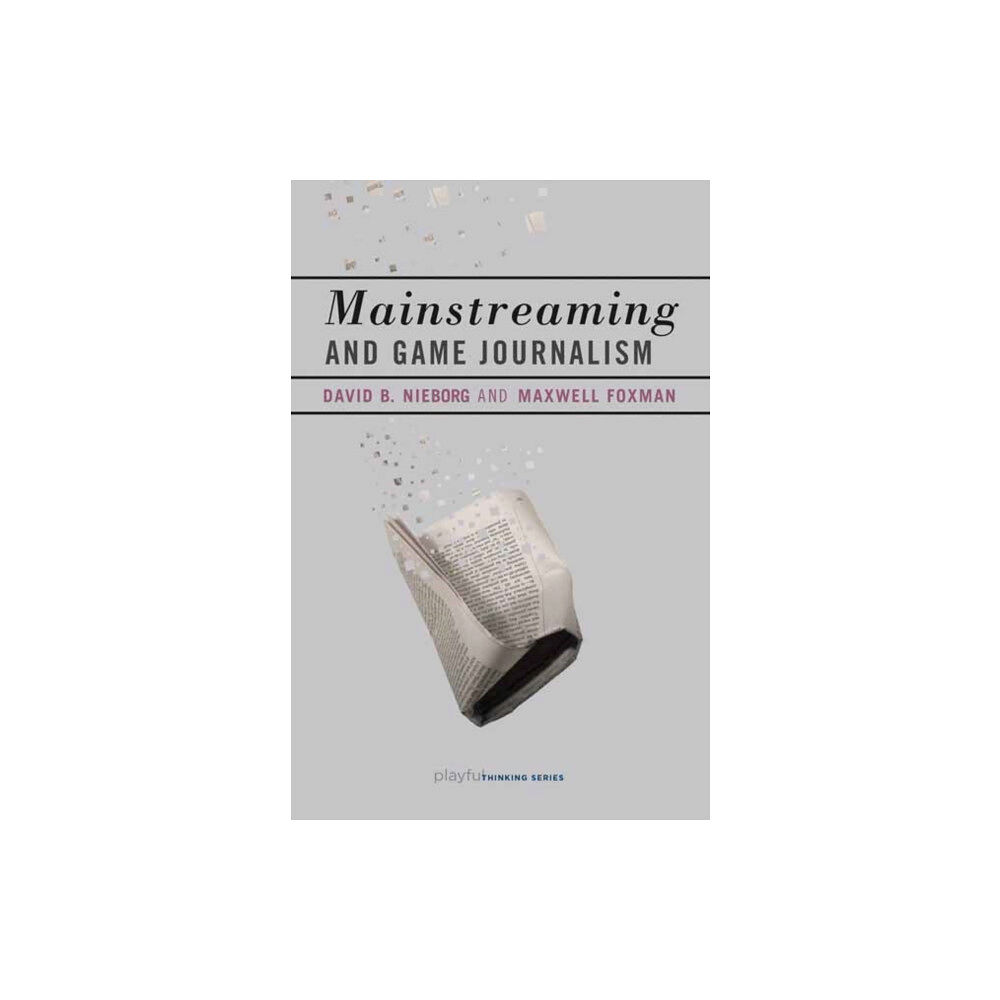- Hem
- Böcker
- Kurslitteratur
- Samhälle & Politik
- Mainstreaming and Game Journalism (häftad, eng)

Mainstreaming and Game Journalism (häftad, eng)
Why games are still niche and not mainstream, and how journalism can help them gain cultural credibility.
Mainstreaming and...
Mainstreaming and...
369 kr
415 kr
Bara 2 kvar
Skickas inom 2-3 vardagar
- Fri frakt
Fri frakt över 299:-
Snabb leverans
Alltid låga priser
Produktbeskrivning
Why games are still niche and not mainstream, and how journalism can help them gain cultural credibility.
Mainstreaming and Game Journalism addresses both the history and current practice of game journalism, along with the roles writers and industry play in conveying that the medium is a “mainstream” form of entertainmentThrough interviews with reporters, David B. Nieborg and Maxwell Foxman retrace how the game industry and journalists started a subcultural spiral in the 1980s that continues to this day. Digital play became increasingly exclusionary by appealing to niche audiences, relying on hardcore fans and favoring the male gamer stereotype.
At the same time, this culture pushed journalists to the margins, leaving them toiling to find freelance gigs and deeply ambivalent about their profession.
Mainstreaming and Game Journalism also examines the bumpy process of what we think of as “mainstreaming.” The authors argue that it encompasses three overlapping factorsFirst, for games to become mainstream, they need to become more ubiquitous through broader media coverage. Second, an increase in ludic literacy, or how-to play games, determines whether that greater visibility translates into accessibility. Third, the mainstreaming of games must gain cultural legitimacy.
The fact that games are more visible does little if only a few people take them seriously or deem them worthy of attention. Ultimately, Mainstreaming and Game Journalism provocatively questions whether games ever will—or even should—gain widespread cultural acceptance.
Mainstreaming and Game Journalism addresses both the history and current practice of game journalism, along with the roles writers and industry play in conveying that the medium is a “mainstream” form of entertainmentThrough interviews with reporters, David B. Nieborg and Maxwell Foxman retrace how the game industry and journalists started a subcultural spiral in the 1980s that continues to this day. Digital play became increasingly exclusionary by appealing to niche audiences, relying on hardcore fans and favoring the male gamer stereotype.
At the same time, this culture pushed journalists to the margins, leaving them toiling to find freelance gigs and deeply ambivalent about their profession.
Mainstreaming and Game Journalism also examines the bumpy process of what we think of as “mainstreaming.” The authors argue that it encompasses three overlapping factorsFirst, for games to become mainstream, they need to become more ubiquitous through broader media coverage. Second, an increase in ludic literacy, or how-to play games, determines whether that greater visibility translates into accessibility. Third, the mainstreaming of games must gain cultural legitimacy.
The fact that games are more visible does little if only a few people take them seriously or deem them worthy of attention. Ultimately, Mainstreaming and Game Journalism provocatively questions whether games ever will—or even should—gain widespread cultural acceptance.
| Format | Häftad |
| Omfång | 224 sidor |
| Språk | Engelska |
| Förlag | MIT Press Ltd |
| Utgivningsdatum | 2023-09-26 |
| ISBN | 9780262546287 |
Specifikation
Böcker
- Häftad, 224, Engelska, MIT Press Ltd, 2023-09-26, 9780262546287
Leverans
Vi erbjuder flera smidiga leveransalternativ beroende på ditt postnummer, såsom Budbee Box, Early Bird, Instabox och DB Schenker. Vid köp över 299 kr är leveransen kostnadsfri, annars tillkommer en fraktavgift från 29 kr. Välj det alternativ som passar dig bäst för en bekväm leverans.
Betalning
Du kan betala tryggt och enkelt via Avarda med flera alternativ: Swish för snabb betalning, kortbetalning med VISA eller MasterCard, faktura med 30 dagars betalningstid, eller konto för flexibel delbetalning.
Specifikation
Det finns tyvärr inga specifikationer att visa för denna produkt.
